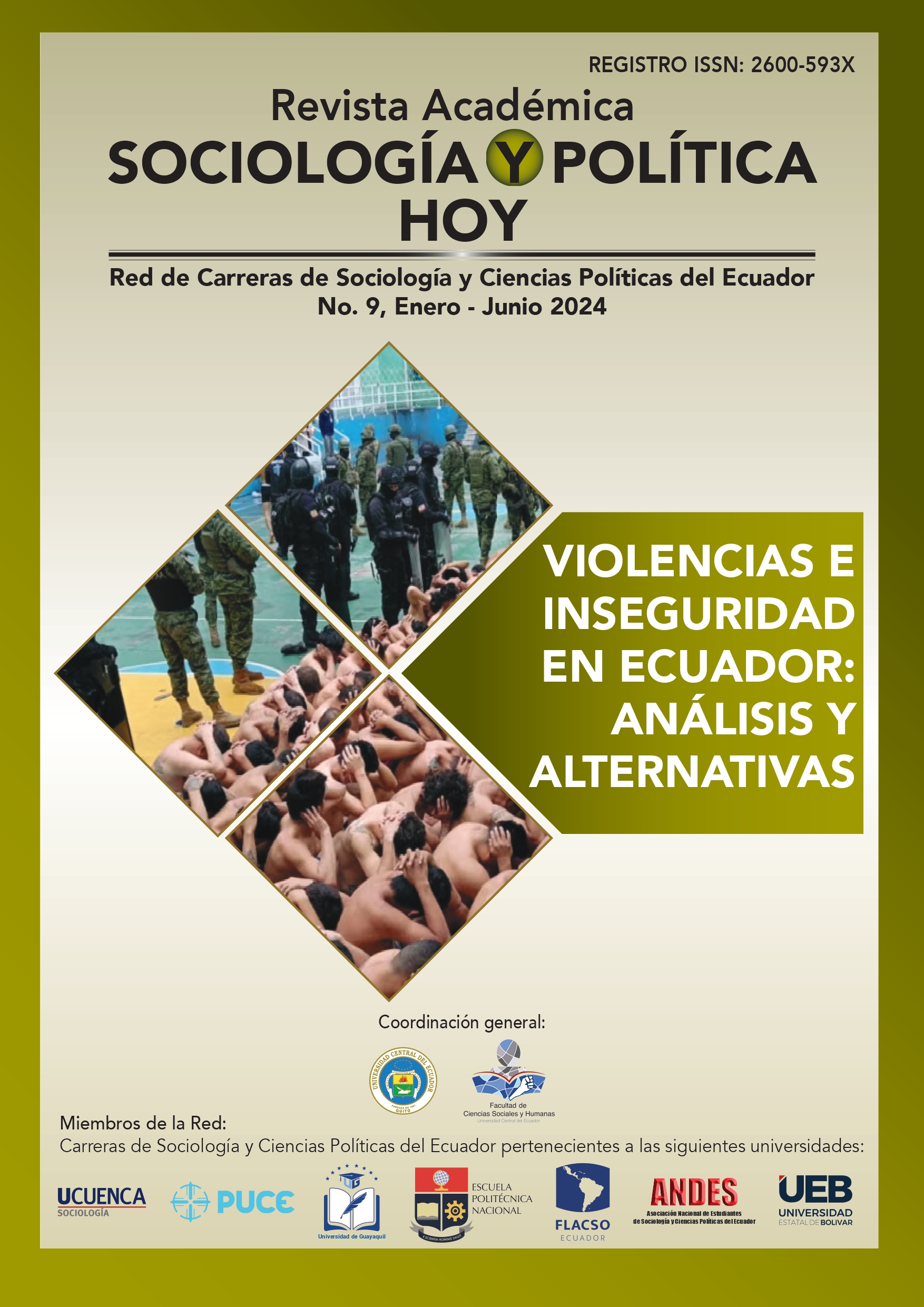Internal conflict and transnational problem: the articulation of war narratives
Keywords:
organized crime, internal armed conflict, terrorism, crime balances, civil-political war, war on drugs, speechAbstract
The article traces the origins of the policy for controlling organized crime. It presents some elements to understand why a framework of ‘internal armed conflict’ is configured around notions such as ‘organized crime’ and ‘terrorism’ in Ecuador. The political construction of these notions is discussed, highlighting how declarations of war result from the interplay of local, national, and global discourses. In other words, language, although ambiguous and biased by North American experience and international politics, can define military responses as a solution to the problem.
Given this panorama, it is suggested to comprehend the dynamics between crime and high rates of violence as a result of the imbalance between state capacities and the profitability of crime as a business. A better understanding of criminality and its attractiveness to illegal entrepreneurs and the entire beneficiary chain could offer an alternative perspective.
From the Ecuadorian case, international law that serves as the basis for declaring an internal armed conflict and its connection to terrorism is analyzed. Finally, from the political dimension of social organization, a question is raised about the appropriateness of defining it as a civil war in the fight against organized crime.
Metrics
References
Antonopoulos, G. A., & Papanicolaou, G. (2018). Organized Crime. Oxford University Press.
Baechler, J. (2018). Les figures de la guerre civile. La Guerre civile.
Beauvallet, O. (2018). Conflit armé internet et compétence universelle en Suisse. Revue de Science Criminelle et de Droit Pénal Comparé(4), 847-859.
Bergman, M. (2023). El negocio del crimen. Fondo de Cultura Económica.
Bergman, M. (2023). El negocio del crimen: El crecimiento del delito, los mercados ilegales, y la violencia en América Latina. Fondo de Cultura Económica.
Capela, C. (2013). Réforme(s) du controle des drogues: l'Amérique du Sud en pointe. Politique Etrangère, 4, 119-129.
Carrión Mena, F. (2022). La violencia en el Ecuador, una tendencia previsible. Ecuador Debate, Extrativismo: crisis y alternativas sustentables(117), p.15-40.
Favarel Garrigues, G. (2003). L'évolution de la lutte anti-blanchiment depuis le 11 septembre 2001. Critique internationale, 3(20), 37-46.
Kessler, G. (2010). Crime organisé et violences en Amérique latine et dans les Caraibes. Problemes d'Amérique Latine, 2(76), 5-23.
Labrousse, A. (2011). Geopolítica de las drogas. Marea.
Layedra Torres, F. (24 de Enero de 2024). El conflicto armado interno, una ruta dura e incierta para el país. Expreso.
Lessing, B. (2020). Violencia y Paz en la Guerra contra contra las Drogas. Uniandes.
Mora Jiménez , R. (21 de enero de 2024). Ecuador, sin pauta histórica ante el terrorismo. Expreso.
Ortiz, S. (19 de Enero de 2024). Salcedocontó a Norero las comodidas de las Cárcel 4. Expreso.
Palma, J. (5 de Marazo de 2024). Fiscalía expone los hilos politicos en la justicia. Expreso.
Sánchez, E. (12 de Febrero de 2024). La cifra de detenidos en guerra se diluye en causas iniciadas. Universo.
Strange, S. (2001). La retirada del Estado: La difusión del poder en la economía mundial. Intermón Oxfam.
Strange, S. (2012). Qué teoría? La Teoría en Mad Money. Relaciones Internacionales(21), 123-144.
Trejo, G., & Ley, S. (2022). Votos, Drogas y Violencia. Debate.
Zumba R., L. (3 de Marzo de 2024). Reformar las SAS es clave en la lucha de lavado de activos. Expreso.
Downloads
Published
How to Cite
Issue
Section
License

This work is licensed under a Creative Commons Attribution-NonCommercial 4.0 International License.
Esta obra está bajo una licencia internacional Creative Commons Atribución-NoComercial 4.0.









